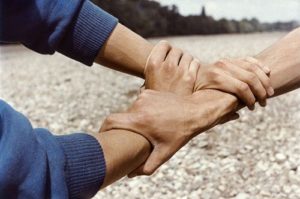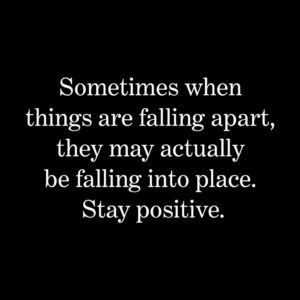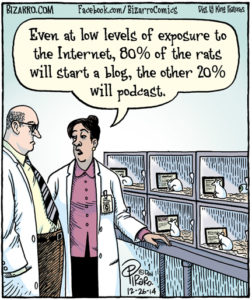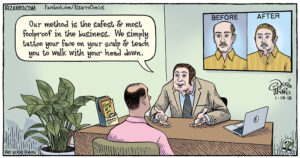 There’s a NYT article called “The Tyranny of Convenience” by Tim Wu which I’ve conveniently shortened here.
There’s a NYT article called “The Tyranny of Convenience” by Tim Wu which I’ve conveniently shortened here.
Convenience seems to decide for us, overriding what we imagine are our true preferences. It’s like saying, “I prefer brewing my coffee, but Starbucks instant coffee is so convenient that I hardly ever do what I prefer.”
Americans say they prize competition, lots of choices, and the little guy. Yet our taste for convenience begets more convenience. Through a combination of the economics of scale and the power of habit, the easier it is to use Amazon, the more powerful Amazon becomes – and thus the easier it becomes to use Amazon.
Making things easier isn’t wicked and it makes our lives less arduous. But given the growth of convenience as a way of life, it’s worth asking what it’s doing to us and to our country.
Created to free us, convenience can become a constraint by erasing the sort of struggles and challenges that help give meaning to life. When we let convenience decide everything, we surrender too much.
The dream of convenience is premised on the nightmare of physical work. But is physical work always a nightmare? Do we really want to be emancipated from all of it?
The invention of “convenience foods,” the electric clothes-washing machines, cleaning products, and other marvels including the electric vacuum cleaner, instant cake mix and the microwave oven could be considered convenience milestones.
Sometimes our humanity is expressed in inconvenient actions and time-consuming pursuits. Maybe that’s why there’ve always been those who resist it, resisting out of stubbornness, yes (and because they have the luxury to do so), but also because they see a threat to their sense of who they are, to their feeling of control over things that matter to them.
By the late 1960s, convenience meant conformity. The counterculture was about people’s need to express themselves and to live with nature rather than constantly seeking to overcome its nuisances. Playing the guitar was not convenient. Neither was growing one’s own vegetables. But such things were seen to have value.
Now in the second wave of convenience technologies, convenience is about personal preference with no effort. When you can skip the line and buy concert tickets on your phone, waiting in line to vote in an election seems irritating. Convenient has even trumped free – the iTunes store made buying music even more convenient than illegally downloading it.
We can’t deny making things easier can serve us in important ways, giving us many choices (of restaurants, taxi services, open-source encyclopedias) where we used to have only a few or none. But being a person is only partly about having and exercising choices. It’s also about how we face up to situations thrust upon us, about overcoming worthy challenges and finishing difficult tasks, the struggles that help make us who we are.
What happens to human experience when so many obstacles, requirements, and preparations have been removed?
Convenience is all destination and no journey. Not always, but we need to embrace the inconvenient more. Because struggle isn’t always a problem. Sometimes struggle is a solution. It can be the solution to the question of who you are.
Embracing inconvenience may sound odd, but we already do it without thinking of it as that. We call them hobbies, avocations, callings, passions. These are the activities that help to define us. They reward us with character because they involve an encounter with meaningful resistance — with nature’s laws, with the limits of our own bodies — as in carving wood, melding raw ingredients, fixing a broken appliance, writing code, timing waves or a runner pushing through pain. Such activities take time.
We shouldn’t forget the joy of doing something slow and something difficult, the satisfaction of not doing what is easiest. The constellation of inconvenient choices may be all that stands between us and a life of total, efficient conformity.
For all its influence as a shaper of individual decisions, the greater power of convenience may arise from decisions made in aggregate, where it is doing so much to structure the modern economy.
Convenience is the most underestimated and least understood force in the world today. In the developed nations of the 21st century, convenience — that is, more efficient and easier ways of doing personal tasks — has emerged as perhaps the most powerful force shaping our individual lives and our economies. This is particularly true in America, where, despite all the paeans to freedom and individuality, one sometimes wonders whether convenience is in fact the supreme value.
 Supposedly, people tend to only take away three ideas from talks. For some reason I’ve noticed some groups of three ideas that are useful and interlocking. Here’re four groups of three things.
Supposedly, people tend to only take away three ideas from talks. For some reason I’ve noticed some groups of three ideas that are useful and interlocking. Here’re four groups of three things.







